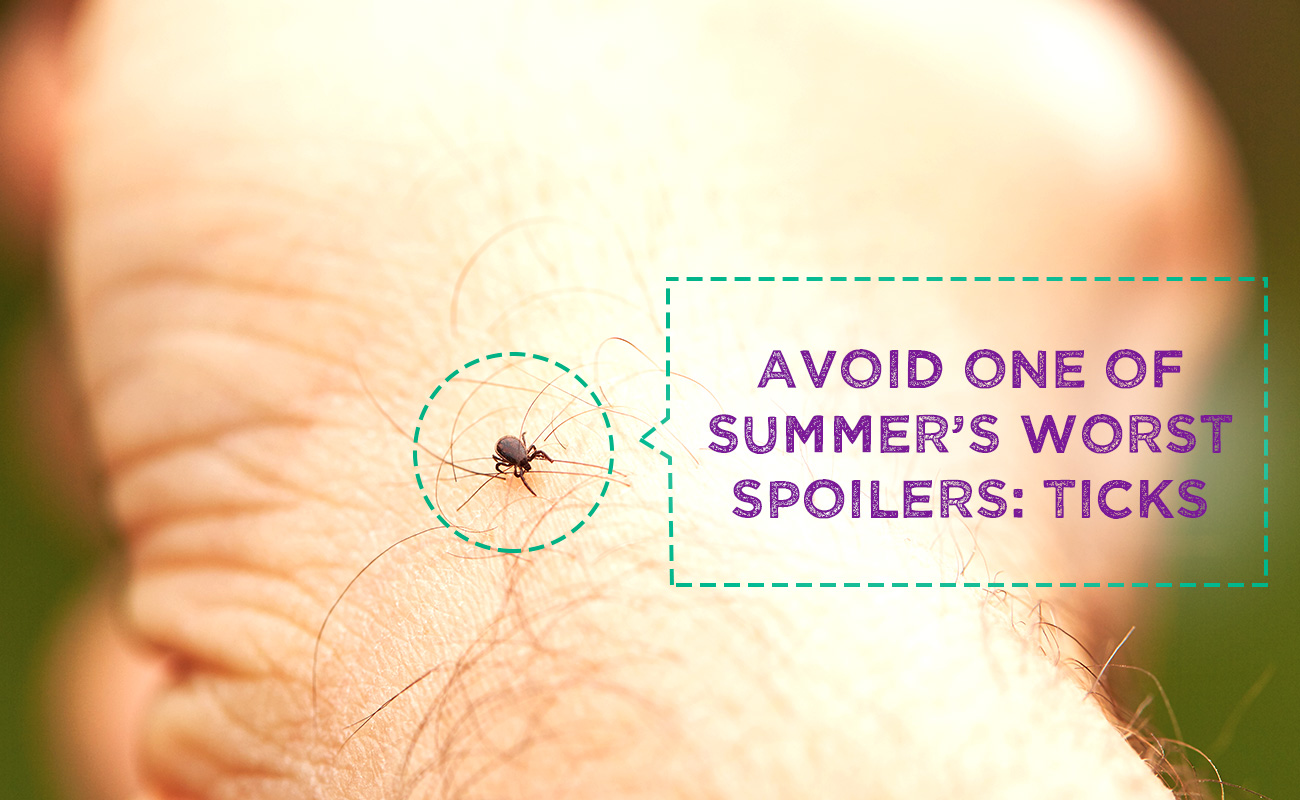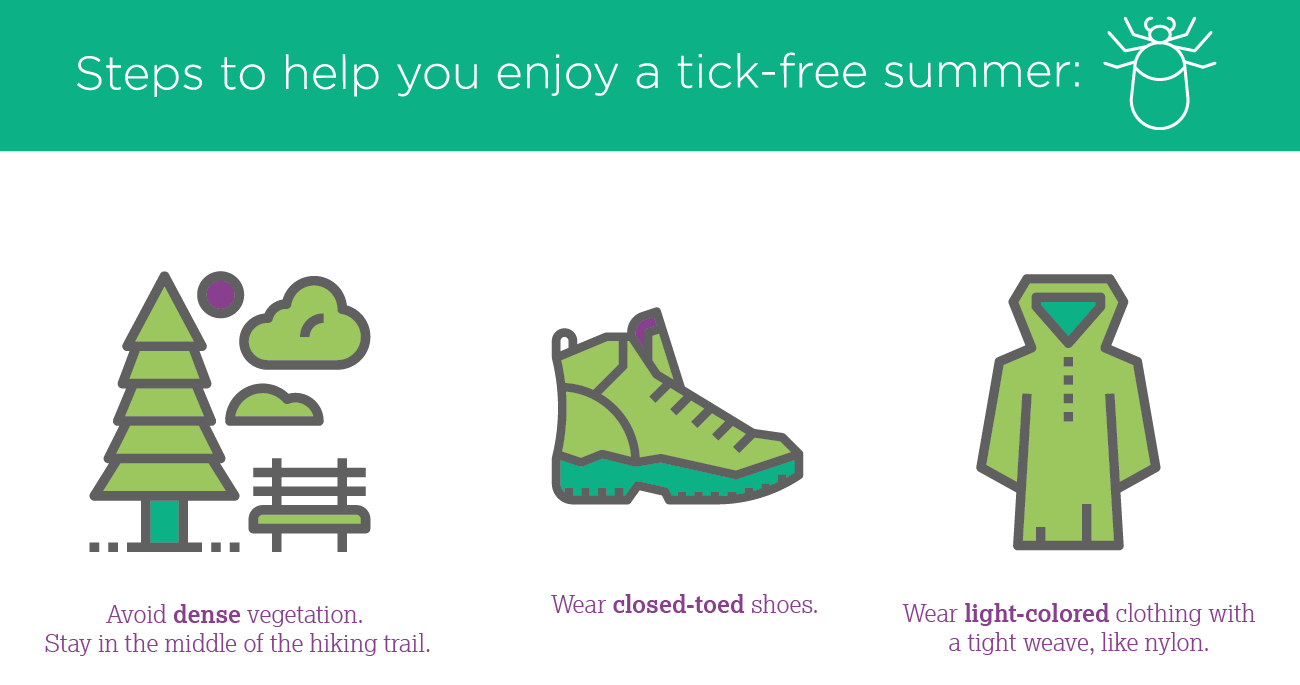Beware the Bite: Stay Safe During Tick Season

As a New Yorker, there is almost no better feeling than to stuff the snow boots in the closet, slide into a pair of flip-flops, and head outside to enjoy a few months of warm sunshine. Whether you’re hitting the trails, the beach, the park, or just throwing some burgers on the grill, be sure to take precautions to avoid one of summer’s worst spoilers: ticks.
Although small, ticks can pack a mighty punch, carrying a number of diseases. Over the last 25 years, the incidents of tick-borne illnesses have spread. Once most prevalent on Long Island and in the Hudson Valley, the number of Lyme and other tickborne diseases have become common in the Capital Region, north into the Adirondacks, and west toward Syracuse.
Lyme disease is the most common tickborne illness in the country, accounting for over two thirds of tickborne disease. Most cases of Lyme have a rash at the site of the bite that takes on a “bull’s-eye” appearance within 30 days of the original bite. Left untreated, Lyme can lead to more symptoms later in the disease.
But these little black-legged parasites don’t have to ruin your camping trip. The New York State Department of Environmental Conservation (DEC) recommends taking steps to help you enjoy a tick-free summer:
- Wear light-colored clothing with a tight weave, like nylon. This will help you spot ticks more easily.
- Wear closed-toed shoes, cover exposed skin with long sleeves, tuck your shirt into your pants, and tuck your pant legs into your socks or boots.
- Check your clothing or skin frequently to spot potential crawling critters.
- Avoid dense vegetation. Stay in the middle of the hiking trail.
- Do a thorough check of yourself when you return indoors and remove any ticks right away. Ticks are often in hard-to-find places: behind the ears, in hair, and in folds of skin.
- Jump in the shower within two hours of coming back inside to check for ticks or wash off any you don’t see.
- Don’t forget your pets. Dogs and cats need regular flea and tick treatment.

The New York State Department of Health, Cornell University, and the United States Environmental Protection Agency also have educational resources about ticks, repellents, and other prevention measures.
If you do find a tick already attached, proper removal is vital to prevent disease transmission. Here are 4 simple steps from the Center for Disease Control and Prevention (CDC):
- Use clean, fine-tipped tweezers to remove the tick. Grasp the tick as close to the skin as possible.
- Carefully pull upward with steady, even pressure without twisting or jerking. The goal is to remove the entire tick in one piece without leaving parts of the mouth attached.
- Thoroughly clean the area and your hands with rubbing alcohol or soap and water.
- Dispose of the tick afterwards by flushing it down the toilet. Do not try to crush the tick.
If the tick was attached for more than 24 hours, you are unsure how long it was on, or you were unable to properly remove the tick, consider calling your health care provider. Also monitor for rashes, fever, or any other new symptoms in the month following the bite. Your provider will determine if antibiotics or other treatments would be appropriate depending on your symptoms and exposure.
Summer is the perfect time to get outside, soak up that Vitamin D, and enjoy time with family and friends. Now that we’ve reviewed some basic tick safety, enjoy the water, woods, and summer to their fullest by being vigilant and proactive about tick prevention!
 The Daily Dose
The Daily Dose
Comments are closed.